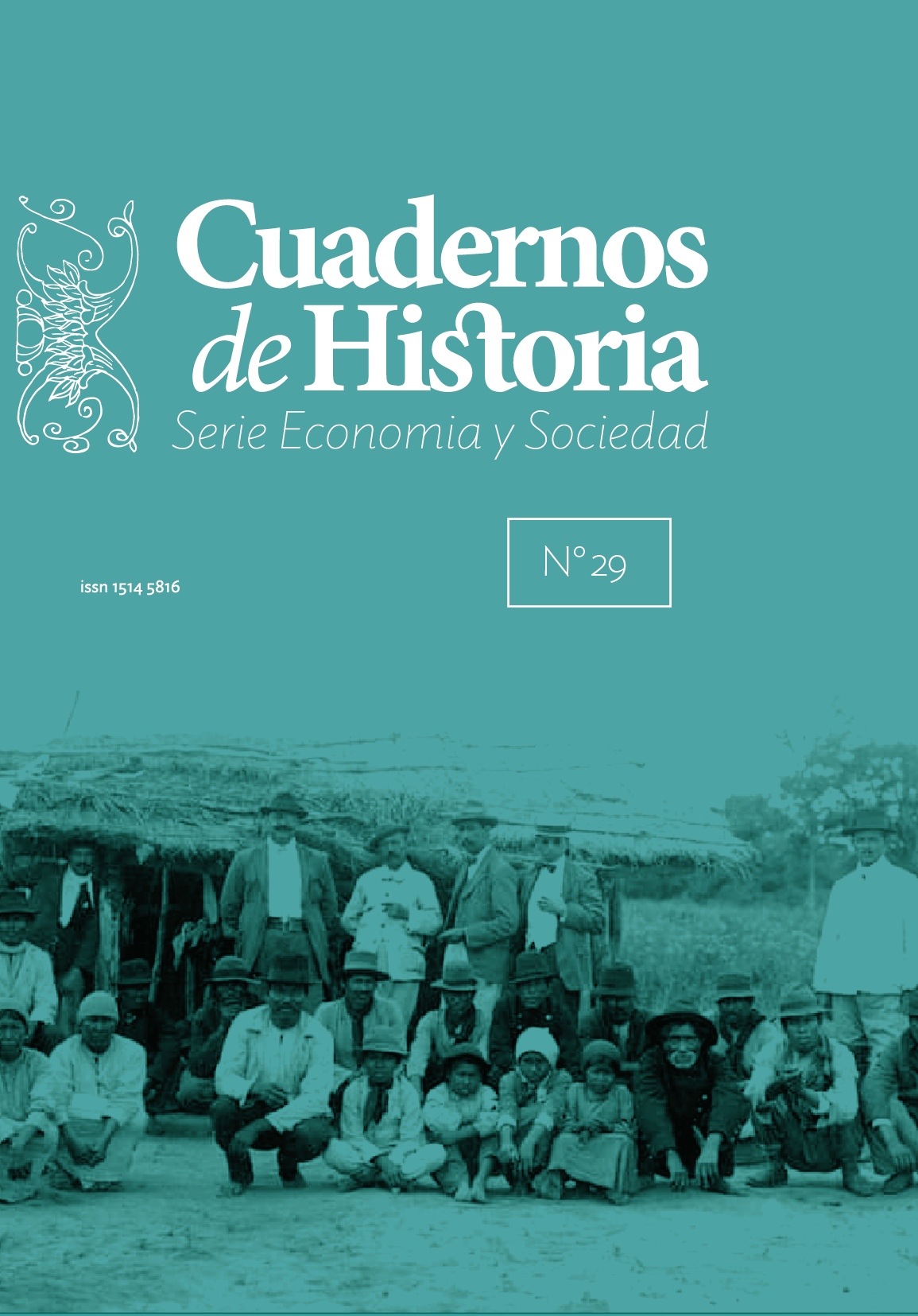The exile magazine Chile-America and the transnational networks of denunciation and political resistance (1974-1983)
DOI:
https://doi.org/10.53872/2422.7544.n29.38710Keywords:
Chilean dictatorship, Chile-America magazine, political and transnational networks of denunciationAbstract
In this article we analyze the participation of the Chilean magazine Chile-América in transnational human rights networks which in essence worked to denounce the crimes committed by the repression apparatus of the Chilean military dictatorship. Founded in September 1974 by members of the Democracia Cristiana, MAPU and Izquierda Cristiana, and composed of important names in Chilean politics exiled in Italy, such as Bernardo Leighton, Julio Silva Solar, Esteban Tomic and José Antonio Viera-Gallo, Chile-América from its headoffice in Rome worked with progressive political parties and associations and with national and international humanitarian organizations. In its pages, the magazine consistently published various reports, especially from Chilean and foreign political groups, as well as from the human rights commissions of transnational organizations, or even released its own dossiers reporting on practices of political violence during the Chilean dictatorship. Such work benefited of contacts both within and outside Chile. Therefore, based on the reports of abuse, we will center on the analysis of the connections established by the magazine's editors, as well as the political and human rights networks through which Chile-América took action.
References
Álvarez Vallejos, R. 2008, “‘Aún tenemos pátria, ciudadanos’: el partido comunista de Chile y la salida no pactada de la dictadura (1980-1988)” en Valdivia, V; y Álvarez Vallejos, R. (Comp.), Su revolución contra nuestra revolución: la pugna marxista-gremialista en los ochenta, LOM Ediciones, Santiago, pp. 19 a 82.
Berlinguer, E., 2009, Democracia, valor universal, Contraponto, Rio de Janeiro.
Gomes, P.C., 2019, Liberdade Vigiada. As relações entre a ditadura militar brasileira e o governo francês: do golpe à anistia, Record, Rio de Janeiro.
Jelin, E., 2002, “Introducción. Gestión política, gestión administrativa y gestión histórica: ocultamientos y descubrimientos de los archivos de la represión” en Catela, L. y Jelin, E., (Comp.), Los archivos de la represión: documentos, memoria y verdad, Siglo XXI, Buenos Aires; Madrid, pp. 1 a 13.
Jensen, S., 2015, “Sobre La política del destierro y el exilio en América Latina de Mario Sznadjer y Luis Roniger: hacia el enfoque sociopolítico, macro-histórico y teórico-analítico del problema” en Historia, voces y memoria, Buenos Aires, núm. 8, pp. 13 a 20.
Orellana, P. y Hutchison, E., 1991, El movimiento de derechos humanos en Chile, 1973-1990, Centro de Estudios Políticos Latinoamericanos Simón Bolívar (CEPLA), Santiago de Chile.
Roniger, L., 2018, Historia mínima de los derechos humanos en América Latina, El Colegio de México, Ciudad de México.
Rojas Mira, C. F., y Santoni, A., 2013, “Geografía política del exilio chileno: los diferentes rostros de la solidariedad” en Perfiles Latinoamericanos, núm. 41, enero/junio, pp. 123 a 142.
Slatman, M., 2018, “Evolución de los métodos de ataque contra dirigentes y figuras públicas en el exilio en el marco de la Operación Cóndor” en Lastra, S. (Comp.). Exílios: un campo de estudios en expansión, CLACSO, Buenos Aires, pp. 65 a 79.
Sznajder, M. y Roniger, L., 2013, La política del destierro y el exilio en América Latina, Fondo de Cultura Económica, México.
Downloads
Published
Issue
Section
License
Copyright (c) 2022 Cuadernos de Historia. Serie Economía y Sociedad

This work is licensed under a Creative Commons Attribution 4.0 International License.
Authors publishing in this journal accept the following terms:
a. The author maintains their copyrights and grants this journal the publication of the first original version of their work that is subject to the Creative Commons Attribution License 4.0. This license agreement allows:
Sharing — copy and redistribution of the published material by any means and formats
Reusing — remix, change, and creation of new material from the published work for any purpose, including commercial use.
b. Authors may enter other non-exclusive license agreements of distribution of the version of the published work (i.e. uploading the material on an institutional virtual archive or republishing it on a monographic volume) as long as they attribute the publication of the original version to this journal.
c. It is allowed and recommended that authors publicize their work on the Internet (i.e. on institutional virtual archives or on their personal or professional websites) after their work has been published in this journal.




